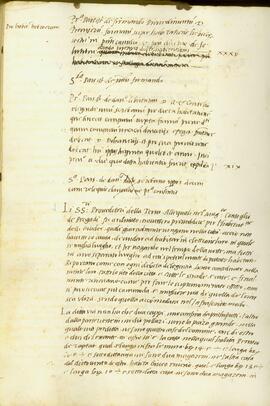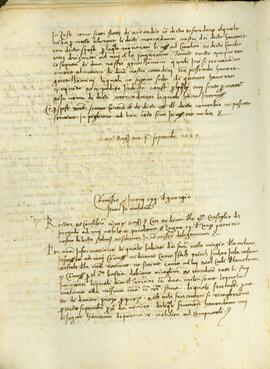Justiciaria; Giustizieria (Inspectors of weights and measures)
- HR-DADU-43
- Fondi
- 15th century - 17th century
Some books of this fonds, such as the Processum matrimoniale Marusse relicte olim Antonii Bratossaglich die VIII mai 1480, Lamenti dinnanzi Giudici del Criminale 1490-1490, Lamenta Notariae 1519-1524, due to their content, in fact belong to other fonds. The books of this fonds mainly consist of complaints (Lamenti de Giutizieria) and judgments that were both reached by justicieri (Sententie de Giusticieri). Some judgments can also be found in the books of complaints. The inappropriate usage of measures and weights, the sale of goods at prices higher than prescribed, the sale of goods without the permission of the justicieri and the embarkation of goods not previously weighed are the most common topics of these complaints and judgments. The goods that are referenced to in the books of this fonds are most often various food products, soap, clothing, and similar products. The books cover the period from the beginning of the 15th to the 70s of the 17th centuries.
There are only very few references to Jewish people in this fonds. These references can mostly be found in the books of the Lamenti de Giutizieria from the 17th century. In these references Jews are usually accused of unauthorized sale of goods or sale at prices higher than prescribed (e.g., vol. 9, f. 10). An interesting fact about these references is that only first names appear in the records.
Inspectors of weights and measures


